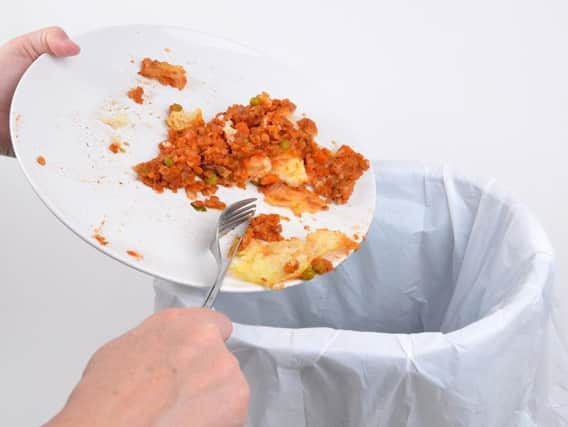Scottish university study finds scrapping trays and reducing plate size reduces food waste


Food waste body Zero Waste Scotland has found that students are the worst group for wasting food, with an average of £273 worth of food per year being thrown away.
The group, which receives public funds, conducted a study at the University of St Andrews on waste habits, finding the majority of people surveyed throw away excess because there is simply too much.
Advertisement
Hide AdAdvertisement
Hide AdAs a result, Zero Waste Scotland is calling on establishments which serve food to scrap trays and reduce the size of plates.
Cat Acheson, the author of the study, said: "Our results highlight that avoidable food waste is a big problem among the student population, adding to evidence showing that 18 to 25-year-old students in particular waste more food than other demographics.
"The St Andrews study highlights the fact that students often end up with an overabundance of food, whether from taking too much in catered halls of residence or buying too much in supermarkets.
• READ MORE: Driving action to cut out food waste"There are many complex factors behind this, including lack of food management skills, and perceptions of food value.
"However, university catering teams can use simple interventions like removing trays from dining halls or reducing plate sizes to 'nudge' students towards only taking as much food as they need.
"This can reduce the amount of food that gets wasted unnecessarily and the carbon emissions which that generates."
Every year, Scottish households throw away more than £1 billion worth of food.
Zero Waste Scotland says measures to tackle the waste could save £437 per home and have the same impact as taking 25% of all cars off the roads.
Advertisement
Hide AdAdvertisement
Hide AdIain Clunie, food and drink programme manager at Zero Waste Scotland, said: "All these scraps from people's plates which they didn't want, or have enough room for, pile up to form a mountain of wasted food.
• READ MORE: Restaurant-goers urged to change their behaviour to cut out food waste"Wasting good food not only loses its nutritional value, it also wastes the water, soil, nutrients, work hours, energy, transport, and plastic packaging, involved in producing and selling it.
"And when our leftovers end up in landfill, they rot and emit methane, which is far more harmful in the short term to our climate than carbon dioxide.
"While previous research has shown that young people waste more proportionately than other age groups, we all waste food.
"We know that food waste is a big problem in educational institutions and also in the hospitality sector.
"Our new study provides further evidence of this. Getting rid of trays and oversized plates everywhere, from university halls to hotel buffets, is an effective and relatively easy way to significantly reduce food waste and the emissions it generates."